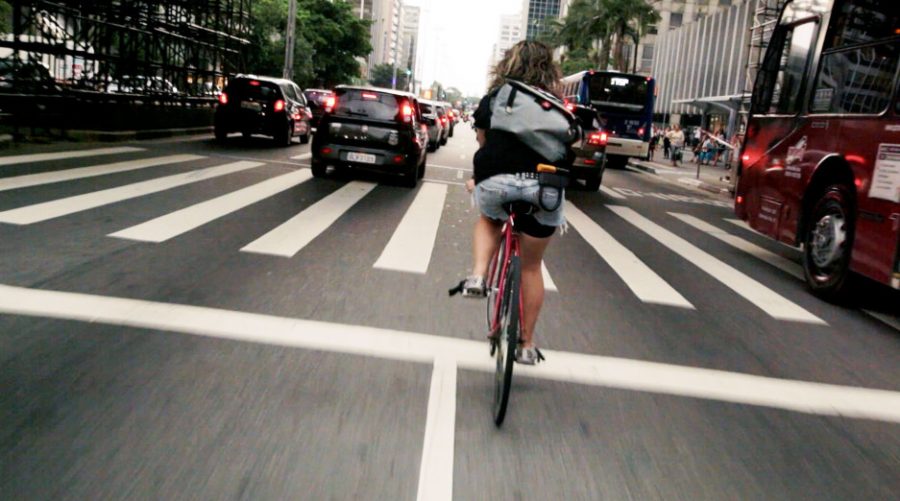Screening as part of the UK Green Film Festival and the Scottish Documentary Institute’s “Moving Docs” project, Bikes vs Cars recently celebrated its European premiere. Focusing on modern urban transport, the film examines the challenges faced by city planners, commuters and those campaigning for better road infrastructure to allow for bicycles.
Where Bikes vs Cars excels is in its poignant visuals. Scattered throughout the film are expansive shots of a multitude of cites faced with congestion problems, the footage carefully used to illustrate and enhance the point being made. Perhaps the most striking moment of the film comes when mourners are shown placing a white bike close to scene where a cyclist was killed – their way of drawing attention to the dangers bike users face on the roads. During the scene, a truck transporting cars drives past and the reality that everyday more and more motorists are taking to the roads is made abundantly clear.
Yet the film poses an interesting conundrum: namely that its greatest strength is also its greatest weakness. Where this documentary shines is in the power of its argument. The entire film lists many of the benefits in encouraging cycling, be they personal health, the easing of congestion in major cities, or the environmental benefits to the planet. The reasoning is well-constructed, clear and makes a lot of sense; however, one can’t help but feel that director Fredrik Gertten doesn’t quite have enough faith in it. As such, what lets Bikes vs Cars down is the slightly flimsy manner in which it conveys the argument against. The chief proponents against expanding cycle lanes and making cities more bicycle friendly are disgraced former mayor of Ontario, Rob Ford, and a former marketing expert for the automobile industry. While the latter may have some useful insights into why people enjoy cars and the practical benefits they can bring, his argument is never as convincing as that of the pro-bikers. Likewise with the Copenhagen taxi driver whose main objection to bikes on the road is that they are annoying for drivers.
Bikes vs Cars romanticises the idea of bikes being the predominant mode of transport for cities, setting them up as the ultimate and only solution, when in reality they are only part of the solution. The film is successful in convincing an instilling the positive impact more bikes and fewer cars could have on our lives, the problem is it never offers a suggestion as to how it might be achieved.
Overall, Bikes vs Cars feels like film that has already picked a winner – and one can’t help but feel that, in that respect, it is mostly preaching to the choir. Chances are, if you’re watching, you already know and agree with the virtues of cycling. That being said, if you have a car and live in a city, it might just convince you to get on your bike.
